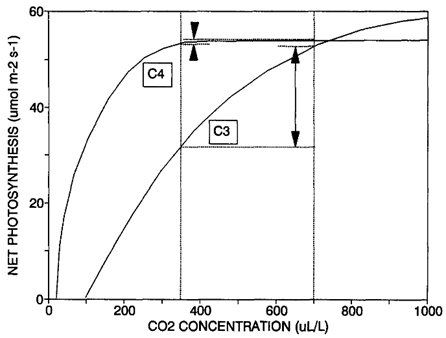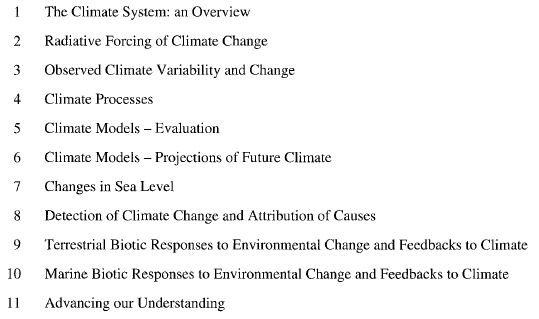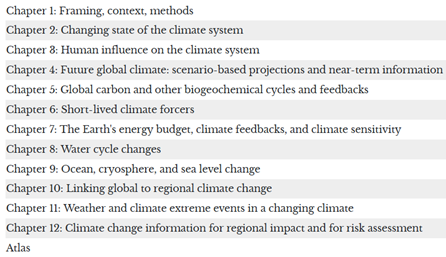mollwollfumble said:
Kingy said:
mollwollfumble, do you watch fox news?
There’s such a thing as Fox news? Never heard of it. Wouldn’t know where to find it. Wouldn’t watch it if you paid me.
Do you want to pay me?
The Rev Dodgson said:
Nope. The latest IPCC report has totally omitted the most important consequence of increased greenhouse gases. And I mean totally.
The most important consequence can be found in a reference from the 1995 IPCC science report.
A doubling of atmospheric CO2 results in a 70% increase in world photosynthesis in C3 plants, which includes all trees.
The news is even better than that, because this also results in a factor of two improvement in water utilisation by plants. (Kimball, Mauney, Nakayama & Idso, 1993)

And why do you think this is the most important consequence, even if it works that way in practice?
I’m not sure that I understand your question. Are you asking why photosynthesis is so important, or are you asking why I think that the direct effect of CO2 fertilisation of plants exceeds everything due to climate change.
If you’re asking why photosynthsis is so important. It’s because it affects all major ecosystems on Earth. It affects crops. I was just thinking tonight that the increase in crop yields due to increased atmospheric CO2 would be a major reason why we’re not all in the middle of a Malthusian castrophe. Also with crops, it allows plants to survive with less transpiration, resulting in less environmental pressure on scarce water resources. It affects forests. A massive increase in forest growth worldwide would have flow on effects to wildlife numbers and hence wildlife survival (including invertebrates and fungi). Also with forests, it helps forests to take over from grasslands, because the fastest growing grasses are C4 as against slow growing grasses and all trees which are C3. The growth of phytoplankton feeds into food chains in the sea. More zooplankton, more food for baby fish to eat, more food for whales to eat.
Global warming also has a positive effect on plant growth, mainly due to less frost damage and longer growing seasons. But the effect through global warming is much smaller.
If you asking why I think that the direct effect of CO2 fertilisation of plants exceeds everything due to climate change. Many reasons.
- One is that that’s what the results from NASA MODIS Earth observation satellites say. Changes in everything except the greening of the Earth are negligible by comparison.
- The second is that it’s been observed over and over again (at least 1000 times) in plants tested for the effect of CO2 in greenhouses.
- The third is that it’s a first order effect. The influence of greenhouse gases on plant growth via global warming is a third order effect, minuscule by comparison.
- The fourth is that we understand the chemical reactions involved in photosynthesis and that’s what they say.
I’m starting to delve into the IPCC_AR6_WGI_Full_Report.pdf, starting to, it’s rather long. But first, I need to know exactly what the scope of this report is. Would it be fair to say that the scope is “bad environmental consequences of climate change due to anthropogenic greenhouse gases”? And not straying outside that scope?
eg. does the scope specifically exclude the revitalisation of coral reefs due to sea level rise, the effect of sea level rise in reducing the worldwide incidence of hurricanes, the 35% increase in crop yields from plant fertilisation by atmospheric CO2, the 60% increase in world photosynthesis and its positive effects on native forests and wildlife and the food web in the sea, the closing of stomatal pores resulting in greater drought tolerance of wild plants, the oxygenation of the Baltic Sea due to reduced fertiliser run-off, the effect of cleaner fuels and sulfur scrubbing that has reduced acid rain, the effects of catalytic converters in reducing NOx pollution, the reduction of soot and volatile organic compounds and foul smells, the cleaning of the world’s rivers, and less risk to wildlife all around the world because of enhanced biosecurity.
Are these missing from the 2021 IPCC report because they’re outside the scope of that report?
“I’m not sure that I understand your question. Are you asking why photosynthesis is so important, or are you asking why I think that the direct effect of CO2 fertilisation of plants exceeds everything due to climate change.”
Since we are discussing a report on the overall effects of increasing GHG in the atmosphere, clearly the latter.
Firstly we should note that your claim is inherently paradoxical, and hence illogical:
- If increased levels of CO2 are overall a good thing, then increased photosynthesis is a bad thing, because it reduces the increase in CO2.
- If increased levels of CO2 are overall a bad thing, which is the conclusion of the report, then increased photosynthesis remains a bad thing, because although it reduces the bad effects of increasing CO2 levels, the overall effects remain bad, so long as CO2 is increasing, and you don’t get the increased photosynthesis unless the CO2 does increase.
Secondly, searching for any possible beneficial effects of increasing GHG levels, treating those as absolutely certain, and totally ignoring everything else, is the very opposite of scepticism.
Finally, I haven’t read the report, and I don’t intend to, but assuming future CO2 projections are based at least in part on historical records, which include all effects such as increased photosynthesis and deforestation, then these effects are included, whether specifically referenced or not.


